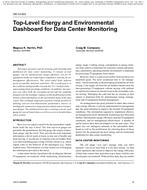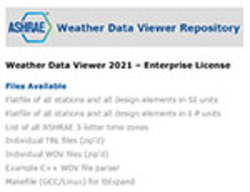The use of traditional single-measure and simplified multiple measure methods to estimate the energy requirements of building systems is well known among heating, ventilating and air conditioning (HVAC) educators. Manual applications of the traditional simplified multiple-measure methods have become obsolete with the practicing engineers,and the detailed simulation programs used by them are difficult to incorporate into the classroom due to the quantity of calculations. It is time for educators to develop computerized methods that are simple and suited to the classroom environment. This paper describes an example of such a technique. The example illustrates how a spreadsheet can be used to predict the energy consumption of an air source heat pump using a simplified multiple-measure method.
Spreadsheets are a useful tool for the engineer. Compared to using a high-level progranming language (e.g.,FORTRAN), creating a spreadsheet is easy to do. Also, the graphing capabilities help to illustrate the operation of a heat pump system. A multiple-measure method involves several calculations of the same equation, and therefore it is well suited to a computer application.
In the work reported, manufacturer’s test data, which were readily available, were used to model a heat pump system and to predict its energy consumption. The heat pump system analyzed included an auxiliary heat source. The spreadsheet allowed the user to select the type of fuel used for the auxiliary heat source. Field data have been used to validate the predicted results and are reported in this paper.
Citation: Symposium, ASHRAE Transactions, 1988, vol. 94, pt. 2, Ottawa
Product Details
- Published:
- 1988
- Number of Pages:
- 13
- File Size:
- 1 file , 1 MB
- Product Code(s):
- D-OT-88-08-5


